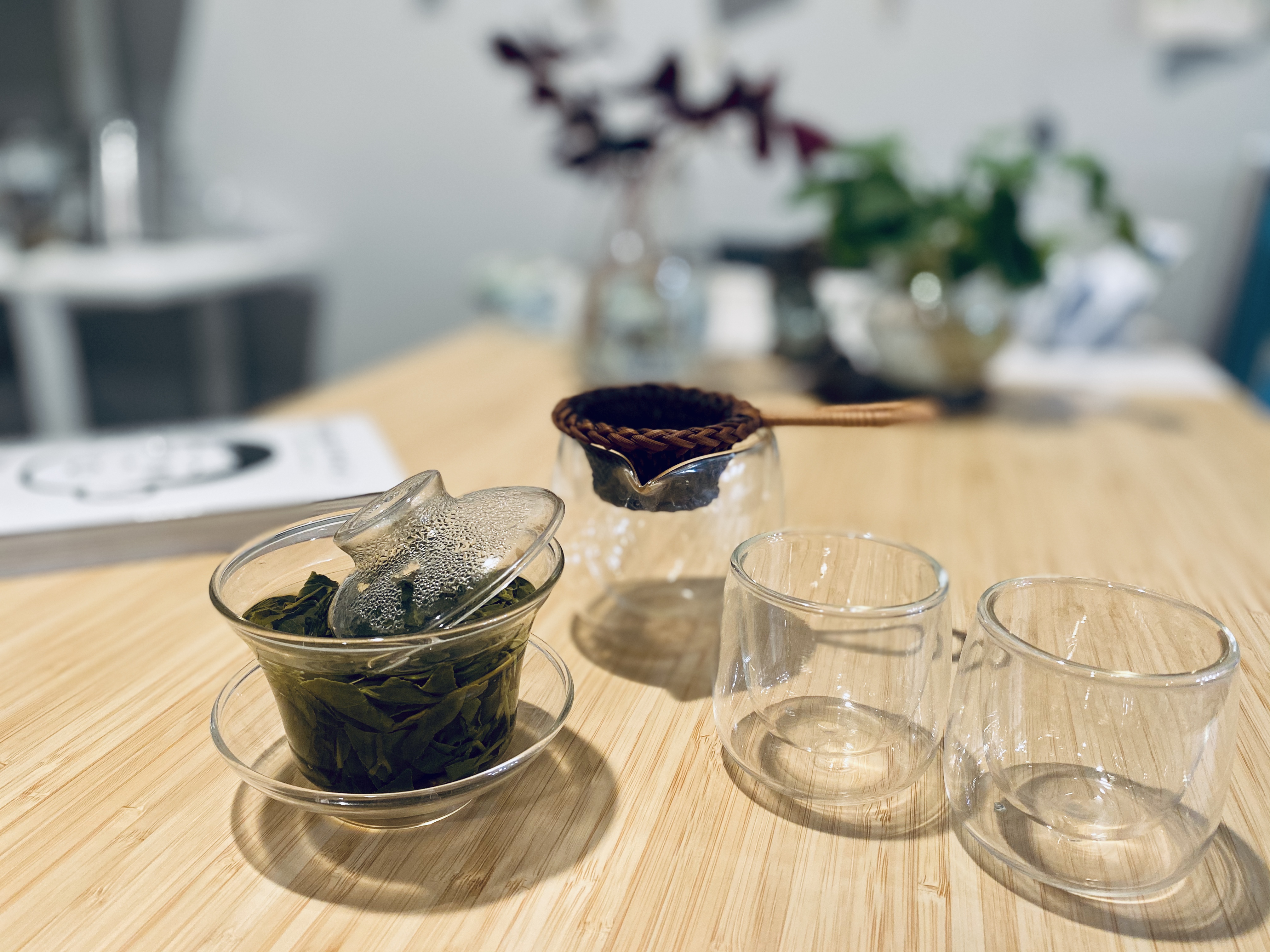I like brewing and drinking tea in the morning. Mostly Chinese green and oolong. Sometimes sencha, genmaicha, or black tea. If I feel fancy throughout the day, I might even make fruit tea.

I started brewing consistently since 2017. I don’t remember exactly how I started, but I think it started with a box of dahongpao from my cousin, gifted to me during my visit in 2016. Or 2017, I don’t remember.
Everybody in my family always brewed tea for ourselves and our guests. Most of the time we did it the fast way: leaves in a cup. You’d sip the broth over time and as the broth gets thicker and thicker. A one-cup hack to achieve the gradience of flavors. They have proper tea sets, the whole traditional table and stuff, but they were reserved for special occasions like Chinese New Year.
I wanted it to be a bit more of a ritual. Spend a bit more time, maybe an hour in the morning, to aid some other reflective activity like journaling, reading, or writing. I started with a tea pot, then moved to a kyusu, and now mostly using my glass gaiwan, fair pitcher, and a set of double-walled glass cups. A mini gongfu set. I wrote down tasting notes of different kinds of tea and observed the taste changes throughout different brews.
But slowly, it became more of a habit than a ritual.
At my dentist appointment last week, they confirmed that my long tea sessions are what’s worsening my gum health. Apparently, when one drinks tea or eats food, their mouth keeps an acidic environment. Typically the saliva neutralizes the acidity after the meal, but since I kept sipping and brewing out of habit from morning to noon, the acidity in my mouth corroded enamel and allowed more bacterial build-up. Yikes.
物极必反 (wùjíbìfǎn), from Master Lü’s Spring and Autumn Annals, means “a thing turns into its opposite if pushed too far.”
A mindful activity turned into a mindless bad habit. It’s time to bring some intentionality back.
